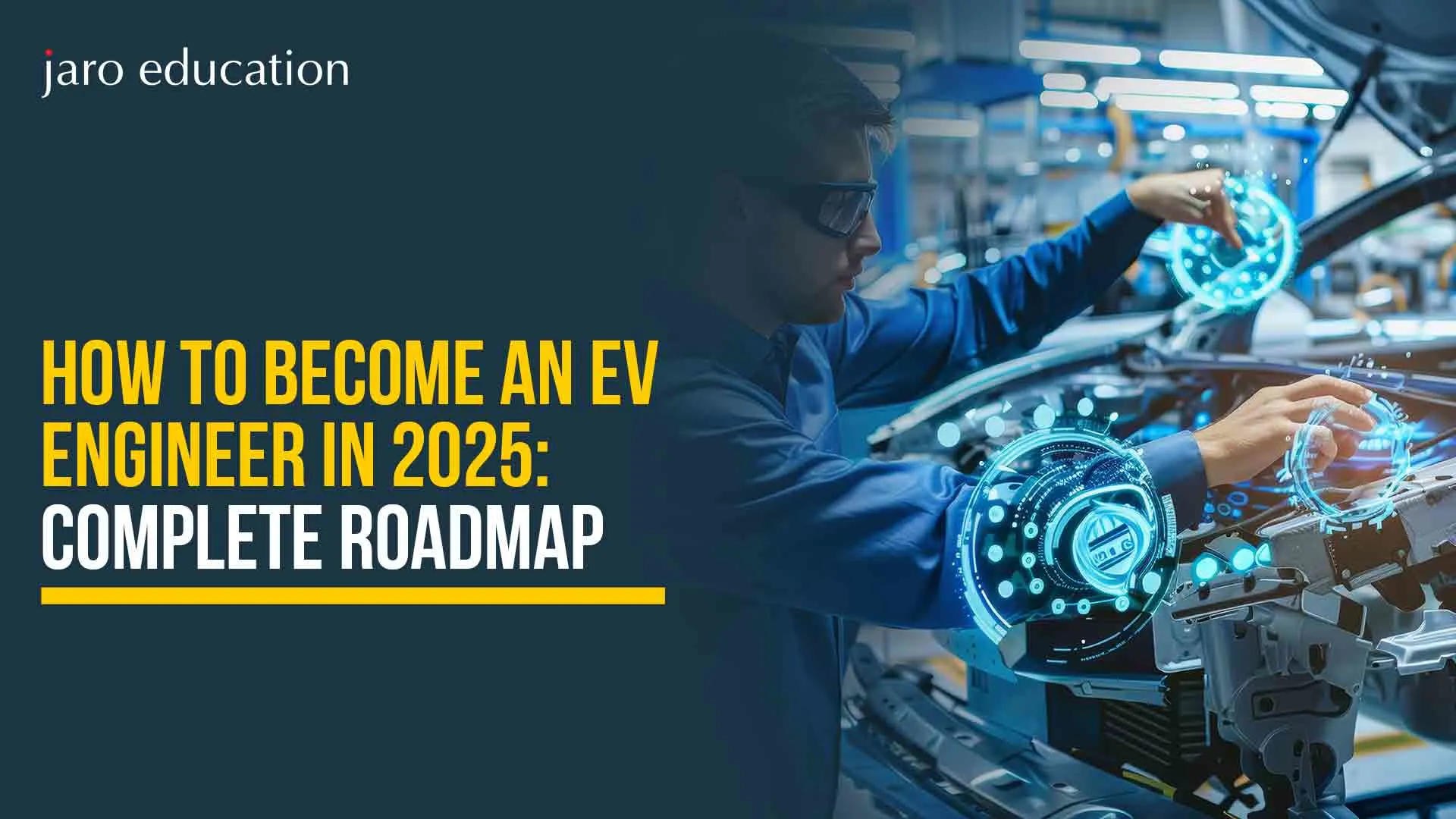How to Become an EV Engineer in 2026: Complete Roadmap

Table Of Content
- The Complete Roadmap for Pursuing a Career as an EV Engineer
- Explore Different Careers Within EV Engineering
- Refine Your EV Engineering Career Pathway with a Professional Course
- Final Thoughts: The Time to Act Is Now
The Complete Roadmap for Pursuing a Career as an EV Engineer
Explore Different Careers Within EV Engineering
Here is a salary overview of the major roles in the EV industry –
| Role | Salary Range |
| Battery Systems Engineering | ₹3 LPA – ₹15 LPA |
| Electric Powertrain Design | ₹2.5 LPA – ₹17 LPA |
| Thermal Management | ₹3 LPA – ₹20 LPA |
| Embedded Systems and Software Engineering | ₹1.8 LPA – ₹12 LPA |
| Control and Automation | ₹2.1 LPA – ₹21.4 LPA |
| Vehicle Dynamics Simulation | ₹3.5 LPA – ₹14.8 LPA |
| Project Manager | ₹10 LPA – ₹25 LPA |
| Chief EV Architect | ₹30 LPA – ₹60 LPA |
| Sustainability Director | ₹35 LPA – ₹69.7 LPA |
Refine Your EV Engineering Career Pathway with a Professional Course
Are you an aspiring EV engineer? Looking for a professional to leverage your skills? Here is the right pick for you – the Advanced Programme in Electric Vehicle Technology (APEVT), Programme Offered by Continuing Education Programme (CEP), IIT Delhi. This programme provides a comprehensive guide to electric vehicle technology. It includes concepts of batteries, fuel cells, cell-to-battery module and packs, power electronics, and more.
The program includes features such as –
- Real-world case studies
- Industry-relevant project work
- Continuous evaluation
- Hands-on exercise and assignments
- Group project
Final Thoughts: The Time to Act Is Now
Becoming an EV engineer is more than getting a job title. It means lots of dedication and chasing missions. Now, the world of EV engineering is reshaping. Governments and automakers are investing billions, and consumers are changing their preferences.
Thus, it’s vital to choose the right roadmap to navigate this ever-evolving landscape. The roadmap in this guide will help you stay focused and achieve your goal.
Frequently Asked Questions
Find a Program made just for YOU
We'll help you find the right fit for your solution. Let's get you connected with the perfect solution.

Is Your Upskilling Effort worth it?

Are Your Skills Meeting Job Demands?

Experience Lifelong Learning and Connect with Like-minded Professionals


